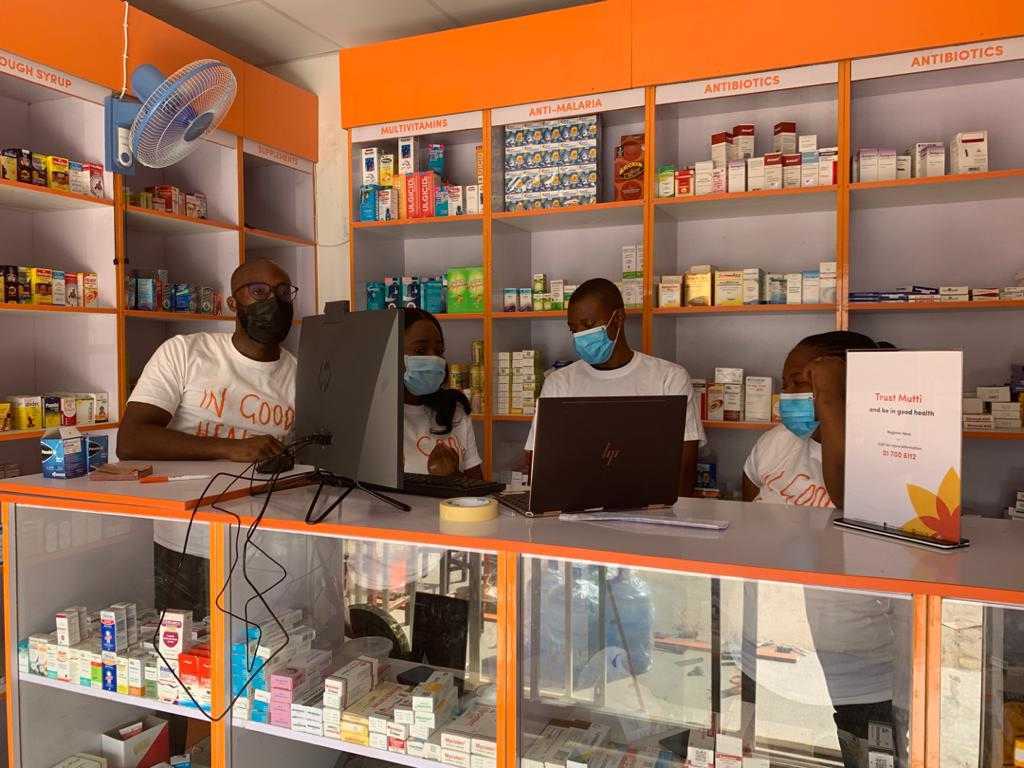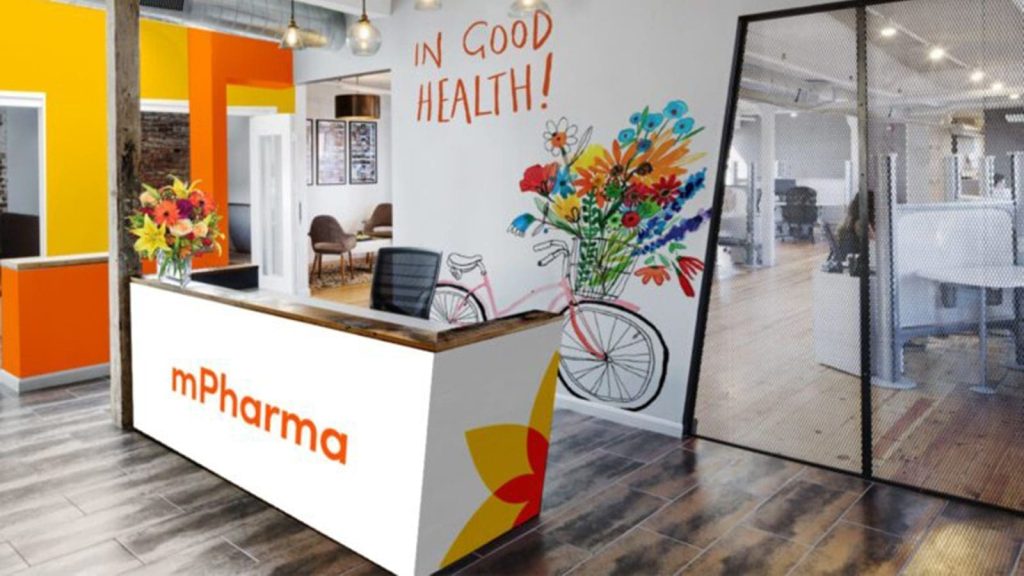mPharma, launched in June 2013 by Gregory Rockson, Daniel Shoukimas, and James Finucane.
The three co-founders hoped mPharma would transform community pharmacies to improve access to medicines and primary healthcare services for patients across Africa through streamlining the pharmaceutical supply chain and ensuring life-saving medications and services reach those who need them the most.
However, building a robust, secure platform for managing pharmacy management, drug supplies, and patient data across a region with diverse infrastructure and limited resources, has been challenging. It has required a powerful and adaptable technological foundation.
How mPharma Works
The company equips pharmacists with the tools they need to deliver exceptional patient care. Through Bloom, mPharma’s proprietary web app, pharmacists can access real-time drug information, treatment guidelines, and patient medication history. This gives them the ability to provide more informed consultations and personalized care.
By helping to improve the physical infrastructure, and then financing and improving their inventory, mPharma is able to improve the quality of care for patients who seek care in these community pharmacies,”
Gregory Rockson, CEO of mPharma.
mPharma’s Bloom software also facilitates better communication between pharmacists and patients; patients can refill prescriptions, schedule appointments, and receive medication reminders – all through a user-friendly web interface. This is not only more convenient but also helps improve patient adherence to treatment plans, leading to better health outcomes.
Limitations and Scalability Issues Before AWS
Before adopting AWS, mPharma relied on other infrastructure providers to power their applications. This approach had significant limitations. Scaling infrastructure to accommodate regionwide growth was cumbersome and time-consuming. Ensuring data security and uptime across a huge area was also a major hurdle.
“The core mission was to help people find medication and we built a prototype around a method that was already in place,” says Gregory Rockson, CEO of mPharma.
“Initially, our solution had doctors using their phones to write prescriptions and then sending them via SMS to the pharmacy. The pharmacy would then use a phone and numerical code to dispense the medication to patients. We quickly learnt that doctors are too busy, and no doctor would find time to write such prescription messages. We needed something more practical. Additionally, the data was not reliable. We ended up building an e-prescription platform which doctors could use.”
The pilot was launched in Zambia and then expanded to Ghana, where the anchor client was the University of Ghana Hospital.
By helping to improve the physical infrastructure, and then financing and improving their inventory, mPharma is able to improve the quality of care for patients who seek care in these community pharmacies,” says Rockson.
mPharma’s Migration To AWS

mPharma’s migration to AWS in 2017 marked a significant turning point. The company adopted a suite of AWS services, including Amazon Elastic Compute Cloud (EC2) for on-demand virtual servers, Amazon Simple Storage Service (S3) for secure and scalable data storage, and Amazon Relational Database Service (RDS) for managing its core databases.
Cloud technology can help address disparities in global public health to increase access to the services and support people need to live longer, healthier lives- regardless of who they are or where they live
Danielle Morris, Global Health Equity Lead at AWS
The scalability and elasticity of the cloud platform allowed mPharma to adapt to its growing network without significant upfront infrastructure investments.
Scaling mPharma and Capturing Patient Data With Bloom
As the company expanded, AWS cloud services scaled smoothly, accommodating surges in data and transactions. This flexibility allowed mPharma to maintain a reliable and efficient platform as its reach extended across Ghana.

The company used Bloom to capture data that will help the patients and aggregated this data anonymously to get market intelligence to mPharma partners. mPharma uses Bloom to track the whole life cycle of patients.
The AWS Health Equity Initiative
In November 2023, mPharma was selected to receive cloud credits- an allotment of free AWS services- as part of the AWS Health Equity Initiative. The initiative, a three-year, $60 million commitment from AWS is rooted in the belief that health outcomes should not depend on socioeconomic status, geography, or ethnicity.
(mPharma’s) Vendor Management Inventory (VMI) system is used in over 500 pharmacies in different African markets to reduce risks in medicine stocking. In 2022, the company raised $35 million to support its mission.
AWS and the mPharma Partnership
“It’s exciting to see more organisations like mPharma leverage AWS technologies to make a growing impact across the continent,” says Robin Njiru, Public Sector Lead, West & East Africa for AWS.
“Their growth is phenomenal and has continued to enable access to quality medicine and improved healthcare. We look forward to supporting mPharma’s future innovations powered by Artificial Intelligence as the company expands its reach on the African continent and beyond.”
Cloud technology can help address disparities in global public health to increase access to the services and support people need to live longer, healthier lives- regardless of who they are or where they live,” said Danielle Morris, Global Health Equity Lead at AWS.
“We look forward to enabling mPharma and other organizations around the globe to use the power of cloud technology to advance health equity and improve health outcomes.”
AWS + mPharma: By The Numbers
Since adopting AWS, mPharma has grown from serving a single pharmacy in Accra to a network of over 500 pharmacies in Ghana, Nigeria, Kenya, Uganda, Zambia, Ethiopia, Rwanda, Togo, and Benin.
The firm’s Vendor Management Inventory (VMI) system is used in over 500 pharmacies in these markets to reduce risks in medicine stocking. In 2022, the company raised $35 million to support its mission.
In Ghana, according Gregory, it costs about $15,000 to run a National Community Health Planning and Services (CHPS) compound. But Pharma is currently able to run its service similar to CHPS for just $5000.
Challenges Ahead
mPharma’s model is attracting interest from other African nations seeking to address similar issues in their own pharmaceutical landscapes. The company is actively exploring expansion opportunities, with the potential to replicate their success across the continent.

Despite its rapid progress, mPharma still faces challenges. Internet connectivity remains an issue in remote areas of Ghana, hindering access to the platform in certain regions. The company is actively working on solutions to these challenges, such as developing offline functionalities within the app, to ensure inclusivity.
As mPharma continues its journey, AWS will undoubtedly remain a critical partner. With AWS’s ongoing support, mPharma can continue to revolutionize healthcare delivery in Ghana and the other countries of operation, while also serving as a model for innovation across Africa, paving the way for better healthcare outcomes across the continent.
Follow us on our WhatsApp Channel, Twitter, and Instagram, and subscribe to our weekly newsletter to ensure you don’t miss out on any news.







